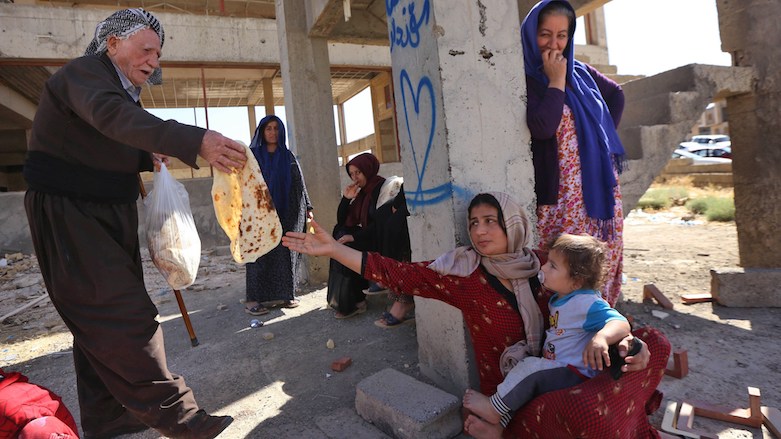WHO: Funding gaps threaten lives of nearly one million vulnerable Iraqis

ERBIL (Kurdistan 24) – Shortfalls in funding are threating to close critical health facilities in the war-torn country of Iraq, leaving nearly one million people without access to basic medicines and health care, the World Health Organization (WHO) warned on Tuesday.
“Support for health services in Iraq has drastically declined since the end of the Mosul campaign just over one year ago,” the agency said in a statement.
“Four health partners have already shut down 22 health service delivery points in 2018 due to a shortage of funds, leaving critical gaps in the provision of health care for children, women and men who are still displaced from their homes, and those who have returned to areas with heavily damaged infrastructure.”
Despite the final victory in the fight against the Islamic State (IS) announced by Iraq in December, millions of Iraqis remain displaced and reside in various camps across the country.
“In total, 38% of health facilities supported by nine health cluster partners are at risk of closure by the end of July, resulting in increased risk of communicable diseases outbreaks and roll back recovery efforts in areas devastated by conflict,” the WHO added.
According to the organization, these facilities currently offer health services to more than 900,000 displaced Iraqis and residents of host communities, including the treatment of common diseases, gynecological services, vaccinations for children, nutrition screening and referral of complicated medical cases for advanced treatment.
“So far, only US$ 8.4 (12.5%) of the US$ 67.4 million required by health cluster partners for the Iraq Humanitarian Response Plan for 2018 has been funded.”
The statement noted that $54 million is urgently required by health partners under the United Nation's (UN) Humanitarian Response Plan to ensure the continuation of health services in newly-accessible provinces of Iraq.
“Health cluster partners play a crucial role in providing health care for displaced people and host communities in Iraq. Since 2018, health partners have treated more than 1.2 million Iraqis,” the organization concluded.
Instability, insecurity, and lack of basic services remain the key factors that cause internally displaced persons (IDPs) to remain in camps instead of returning to their places of origin.
After years of receiving people fleeing from the conflict with IS, the Kurdistan Region continues to remain a safe haven for over 1.3 million Iraqi IDPs and Syrian refugees, according to the latest figures released by the region’s Joint Coordination Crisis Center (JCC).
Editing by John J. Catherine
